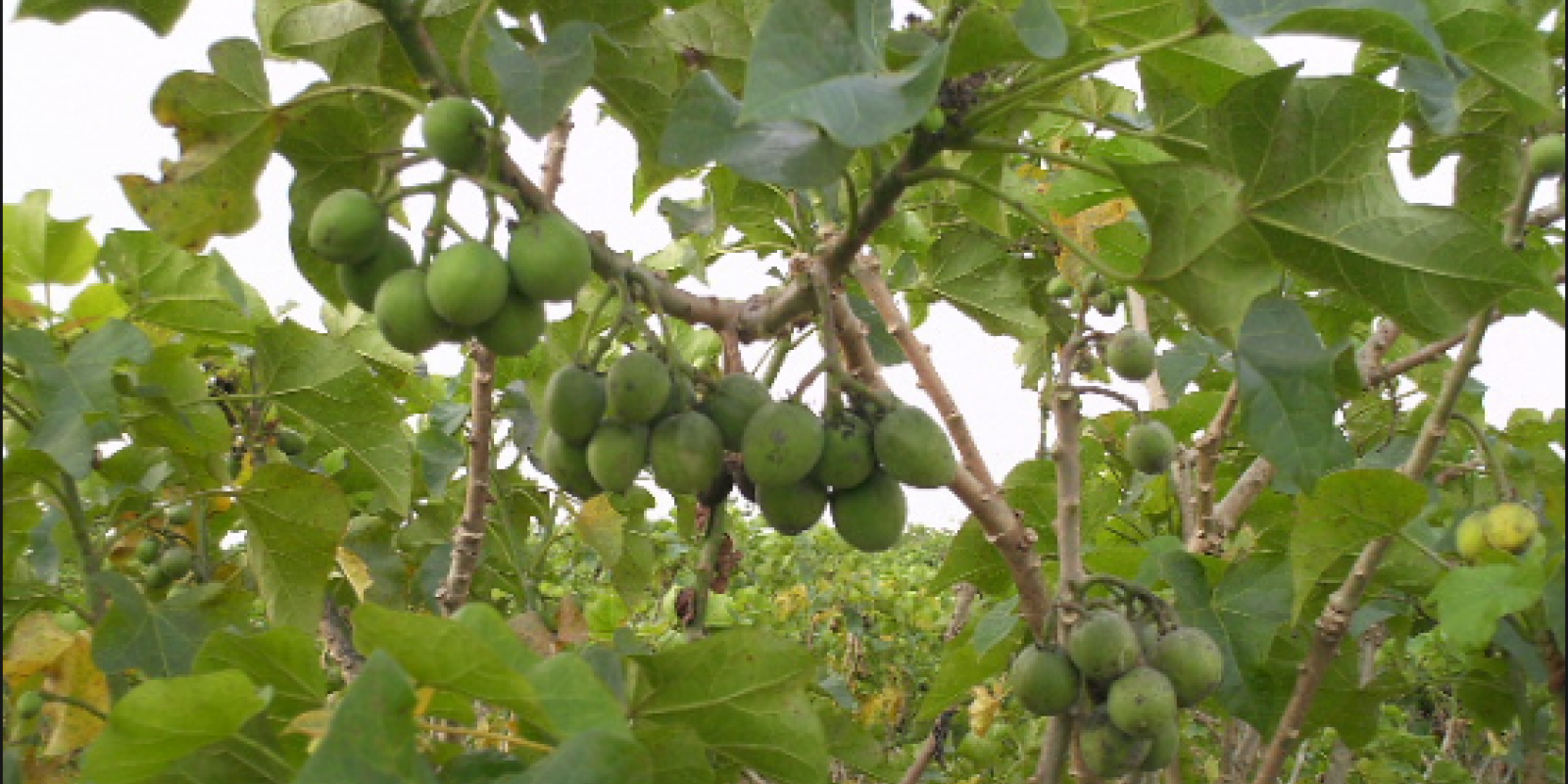
Mechanical Engineering Students Go Green for Egypt
Investigating biofuels as a sustainable source of green energy in Egypt, five mechanical engineering students earned second place in the Go Green Egypt Expo national competition for conducting the first comprehensive study of biofuels in Egypt.
Abdelrahman Othman, Mourad Ghareeb, Mohamed Hussein, Fady Barsoum and Mohamed Bassiouny examined biofuels for their undergraduate thesis titled, “A Comparative Study on Biofuels.” “Fossil fuels such as coal, oil and natural gas are used to power our everyday modern life, Fossil fuels account for 96 percent of Egypt’s energy consumption.,” explained Othman. “However, these sources are nonrenewable, limited and destined to come to an end. For this reason -- and due to the increased consumption of fuel leading to a rise in greenhouse gas emission as well as fuel prices -- the search for a renewable, less pollutant and more abundant source of energy has never been more important for sustainable development. This is where our research comes in.”
Jatropha: Egypt’s Green Energy Alternative?
Taking a comparative approach, the team investigated different options for sustainable biofuels, determining that the Jatropha plant is the best energy alternative for Egypt.
“We researched biofuels to see how green fuels can positively affect Egypt's economy and environment,” explained graduating senior Mourad Ghareeb. “There are many types of biofuels available, so we conducted a qualitative and quantitative comparative study on different biofuels to find the most promising, applicable source for Egypt. Among the 10 sources included in our research, Jatropha proved to be the most suitable for Egypt based on the economy, environment and applicability as well as other technical criteria.”
According to Ghareeb, switching to Jatropha biofuels would not only benefit Egypt’s environment, but also the country’s economy. “The model we are proposing is a locally grown seed that, after processing, will produce a smoke-free fuel to replace amounts of petrol diesel,” he explained. “This will largely decrease emissions, and our hypothesis is that it will also produce a cheaper price per liter than what Egypt is paying in importing, which could a cause huge financial savings, as a lesser subsidy will be needed.”
Next Steps for Egypt’s Green Future
The idea of using biodiesel as a source of energy is not new. "A number of studies have been conducted on this topic in Egypt,” said Othman. “However, in previous research, sources of biofuel were taken and used, yet with no justification as to why this specific source is better that the other. What we did, and what we presented, was never done in Egypt.”
This multifaceted approach is key to Egypt’s energy future, Othman and Ghareeb agree, noting Egypt’s unique advantage in producing clean energy. “Egypt should significantly invest in green solutions for many reasons,” Ghareeb explained. “Egypt has huge potential in terms of green solutions, with yearlong exposure to sun rays, wind fields, hydroelectric power and many other resources and wastes to be cultivated for economic and environmental benefits. The amount of subsidies paid to make fossil fuels more affordable can be partly allocated for investment in more sustainable sources.”
Looking ahead, the team looks to conduct further studies in order to implement their idea on the national level. “We are currently working on conducting tests on engines and checking long-term effects on the life-time of the engine and efficiency of fuel consumption,” Othman said. “In addition, we are also conducting a feasibility study that we are aiming to submit to the Ministry of Agriculture and the Ministry of Petroleum and Energy as an initiative to nationalize the production of biodiesel from Jatropha.”
